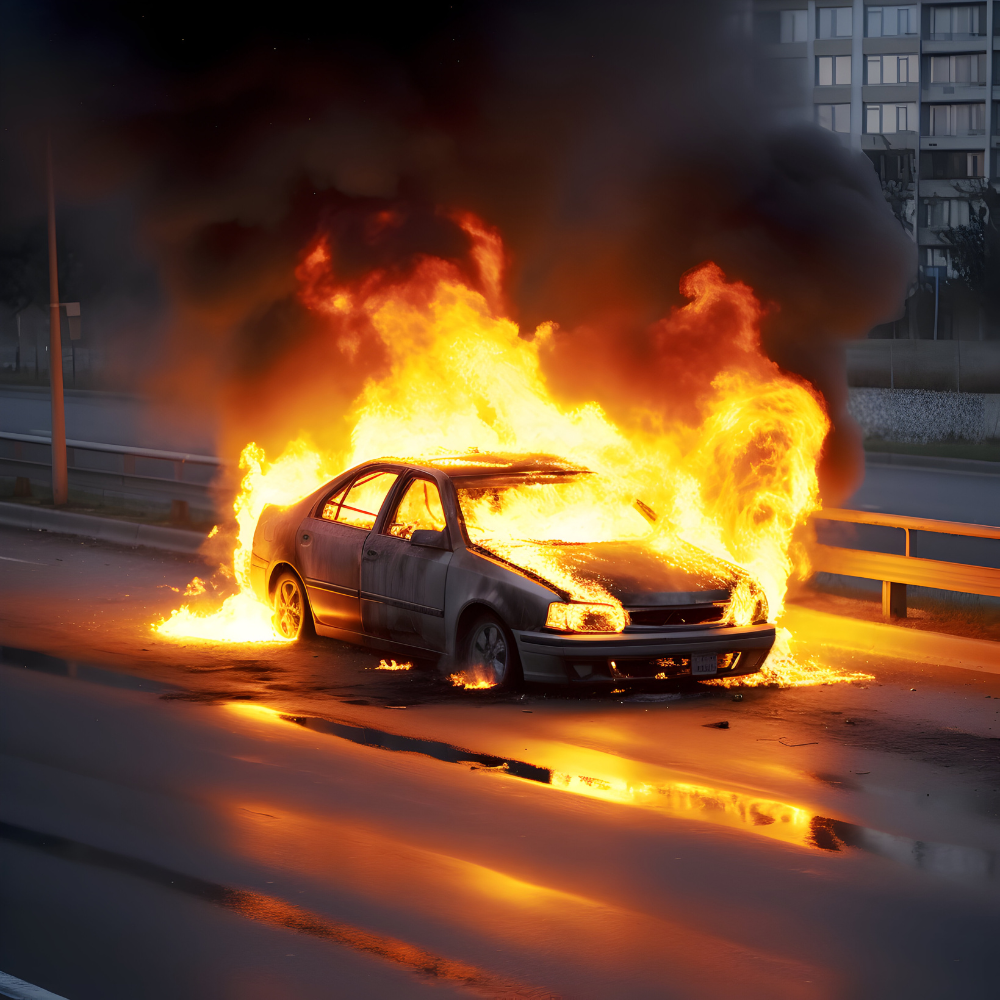Elite soldier in Cybertruck explosion died by suicide before blast
Authorities have identified the man behind the Tesla Cybertruck explosion outside the Trump Hotel in Las Vegas as an active-duty U.S. Special Forces soldier. Matthew Alan Livelsberger, 37, from Colorado Springs, Colorado, died from a self-inflicted gunshot wound shortly before the blast, according to the Clark County Coroner’s Office.
On New Year’s Day, a rented Tesla Cybertruck packed with fuel canisters and firework mortars exploded outside the Trump Hotel in Las Vegas, leaving seven people with minor injuries. Authorities noted that the Cybertruck’s design directed the blast vertically, minimizing damage to the hotel’s glass entrance and surrounding area.
The vehicle had been rented by Matthew Livelsberger in Denver, Colorado, on December 28. He drove it over 800 miles to Las Vegas, arriving less than two hours before the explosion. Surveillance footage and Tesla’s charging network tracked his journey, confirming he was the sole occupant of the vehicle throughout the trip.
The explosion, though contained, caused widespread concern and prompted an investigation into Livelsberger’s motives. While the exact reasons behind the incident remain unclear, authorities are piecing together the timeline of events leading up to the tragic incident.
On Wednesday morning, Matthew Livelsberger parked a rented Tesla Cybertruck near the entrance of the Trump Hotel in Las Vegas. Witnesses observed smoke emerging from the vehicle moments before it exploded. Authorities later determined Livelsberger’s cause of death to be a self-inflicted gunshot wound to the head. His identity was confirmed through matching tattoos and personal belongings recovered from the charred vehicle, including a military ID, passport, and credit cards.
Inside the vehicle, police found two semi-automatic pistols, fireworks, and other materials linked to Livelsberger. Despite the collected evidence, investigators remain uncertain about his motives for the incident. Officials confirmed that the explosion appeared to be an isolated event, with no ongoing threat to the public. Livelsberger’s death and the circumstances surrounding the blast have left many questions unanswered as authorities continue their investigation.
Investigators have identified parallels between the Las Vegas Cybertruck explosion and a 2016 New Year’s Day truck attack in New Orleans that resulted in 14 deaths. Both incidents involved military veterans who served in Afghanistan in 2009 and rented their vehicles through Turo. Despite these similarities, there is no evidence to suggest the two men were connected or served in the same military unit.
Matthew Livelsberger, the suspect in the Las Vegas incident, was a decorated Special Forces Intelligence Sergeant with extensive military experience in both the Army and National Guard. Stationed in Germany, he was on approved leave at the time of the explosion. Livelsberger had recently been in Colorado visiting his wife and eight-month-old daughter. His family, who last spoke with him at Christmas, reported no indications of distress or unusual behavior during their conversations.
The explosion, which injured seven people, has sparked discussions about public safety and the mental health challenges faced by veterans. Authorities are continuing their investigation to uncover Livelsberger’s motives but believe there is no ongoing threat linked to this incident. The tragedy has left both the military and civilian communities grappling with the loss and searching for answers about what led to this devastating event.









